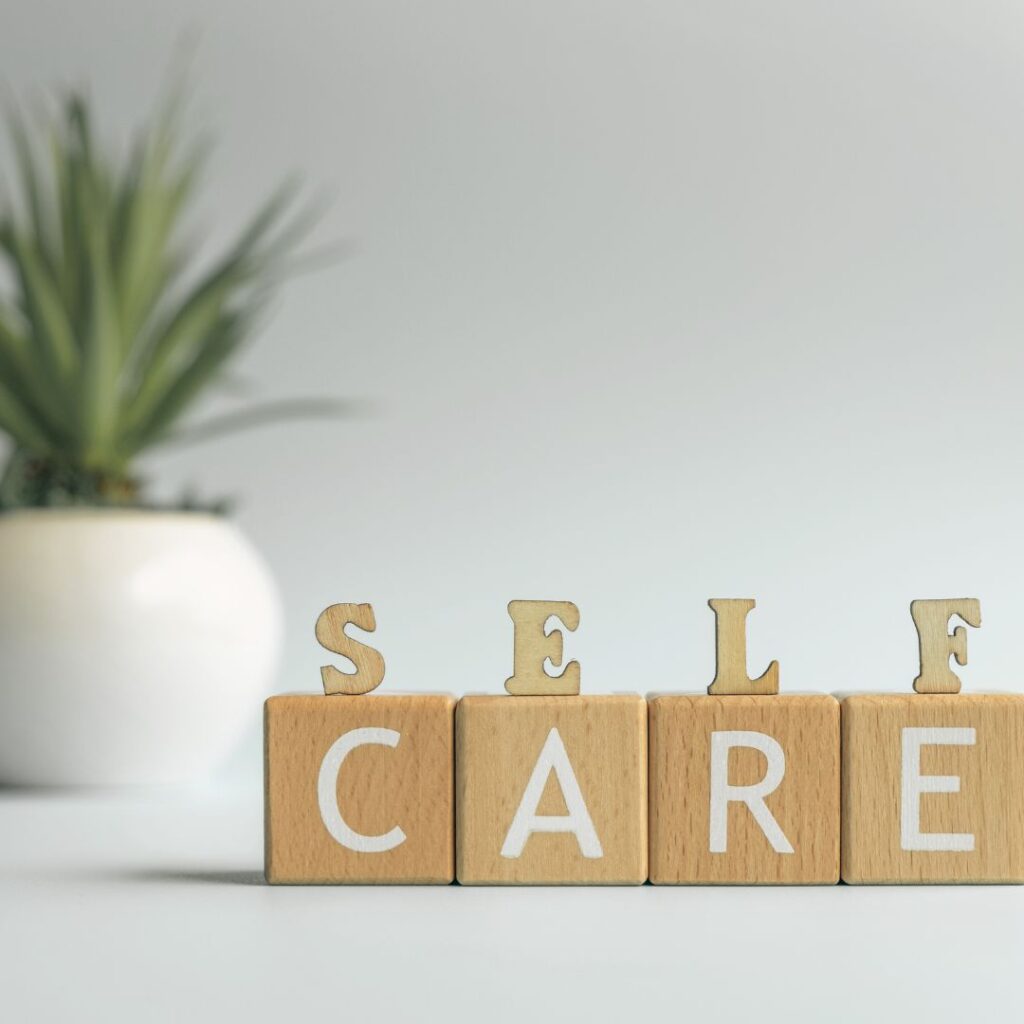Happy Valentines Day! Given I am all about self-care and just wrote about boundaries last week, I thought this would be a great time to write about what a healthy relationship is. No, this is not only for people who are in relationships or dating, this is for every single woman!
I truly believe that a big contributing factor to whether or not you are in a healthy relationship is if you have a healthy relationship with yourself. I don’t necessarily follow the rule of ‘to love another, you must love yourself first’ or whatever the saying is. I know that it’s possible to love another and feel loved by others even when you don’t love yourself.
This blog is about what a ‘healthy’ relationship is and part of that involves self-compassion, setting boundaries, etc. But please don’t think it is going to be about me preaching self love to you. I know how difficult that can be for a lot of us, and don’t want you to think that if you don’t ‘love yourself sick’ that means no-one else will. That is just not true.
I will discuss some characteristics that form a healthy relationship including good communication, trust, mutual respect, support and encouragement and shared values and goals. I will also discuss the importance of fostering a healthy relationship with yourself such as setting boundaries, self-awareness and self compassion. Notice how I did not say ‘self-love’? For some, loving ourselves feels soooo out of reach, so let’s just take small steps and start with less ‘self-loathing’.
What does a healthy relationship involve?

Open communication
Open communication involves not just what we say but how we say it, active listening and understanding. In a healthy relationship, partners feel free to express their thoughts, feelings, and needs without fear of judgment. This promotes a sense of connection and intimacy.
Communication isn’t only about verbal expression; non-verbal cues, body language, and the ability to empathise are just as important. In fact, for me – non-verbal language is more important then verbal communication! I can usually tell if my husband is thinking something different to what he is saying, I can tell what mood he is in just by seeing his face for a split second. A lot of us are like that, we notice even the tiniest of changes in a persons facial expressions. Which is why it is so important to be open and honest, if I can tell someone is lying to me, I don’t feel safe in the relationship.
To enhance communication in your relationship try to demonstrate non-judgement, give your partner your full attention when they speak with you. Validate their emotions like you would want yours to be and be clear in expressing your needs while also respecting theirs.
Healthline wrote an article here which includes tips for better communication. One tip I would give to anyone, is to take a breath before responding. It is important not to be ‘reactive’ and allow yourself space for silence, to take a deep breath and think before you respond.
Trust
Trust involves having faith in your partner’s integrity, reliability, and intentions. Building trust takes time and consistency, and it requires open communication and transparency. Trust is not only about fidelity but extends to reliability, dependability, and the belief that your partner has your best interests at heart.
In a trusting relationship, partners feel secure, knowing they can rely on each other during both good times and challenges. To nurture trust in your relationship it is important to be honest and transparent, keep promises and commitments and establish and respect boundaries.
Having trust for another person can be difficult if others have breached your trust in the past. I get it, I didn’t trust men for a LOOOOONG time. As far as I was concerned, they had to earn my trust through their actions (not just their words). But, not fully trusting people in the past has ultimately lead to relationships failing. It isn’t fair on our partner if we don’t trust them (if they haven’t done anything to warrant mistrust from us). So, what can you do to help you to begin to trust others? Very Well Mind have a good article here that discusses the reasons why you might have trust issues and ways to overcome them.
Mutual respect
Respect involves valuing your partner as an individual, recognising their autonomy, and appreciating their uniqueness. In a respectful relationship, both partners feel seen, heard, and acknowledged for who they are.
Mutual respect extends beyond basic courtesy; it involves a deep understanding and acceptance of each other’s values, beliefs, and boundaries. Even in moments of disagreement, maintaining a foundation of respect allows for constructive dialogue and conflict resolution.
To cultivate mutual respect in your relationship, be empathetic and try to understand your partners point of view (even if you disagree with it). Communicate without resorting to disrespectful language or yelling at them. This may not be easy for some people. I know I used to be in yelling matches with partners in the past, this is what I grew up with – so I just thought it was normal. But, I actually really hated it. I hated arguing, I hated men raising their voice at me and calling me names. Now that I am in a respectful marriage, I know how much better it is when you and your partner respect one another. We NEVER yell, or call each other names and when we disagree on something – it’s ok.
Psychology Today have an article which outlines 25 ways you can show respect towards you partner, if you want to have a read here.
Support and encouragement
Partners who actively support and encourage each other’s personal and professional endeavours is healthy. It involves being each other’s cheerleaders, providing emotional support, and fostering an environment where both individuals can thrive.
Support and encouragement create a sense of partnership, where challenges are faced together and victories are celebrated jointly. In times of difficulty, knowing that your partner has your back promotes resilience and strengthens your bond.
To enhance support and encouragement in your relationship, it is important to actively engage in your partners interests and goals. Offer constructive feedback and encouragement during challenging times, celebrate achievements and express gratitude.
This doesn’t mean that you have to have the same hobbies as them or do everything together. It might just mean being supportive of their desire to go surfing while you do your own thing – but also doing some things together as a team. Before my marriage, I never understood how impactful having a supportive partner could be. I’m not exaggerating when I say that having a supportive husband has been life changing for me. It has lead to opportunities I never would have had otherwise!
Shared values and goals
Sharing common values and goals is another huge one. Don’t get me wrong, differences add richness to a relationship, but a foundation of shared principles creates a sense of alignment and purpose.
Shared values involve having similar beliefs, priorities, and life philosophies. This leads to a more cohesive framework for decision-making and long-term planning. Common goals provide direction and motivation in a relationship, helping you to feel like a team.
To build shared values and goals in your relationship I would encourage you to have open discussions about your own values and goals. Identify if there is common ground between the two of you, are you aligned with some of your beliefs and priorities? Set goals together, making it a journey for the two of you.
Having similar values and goals in my marriage has been amazing! In the past, my partners didn’t share my values in autonomy, feminism, freedom of choice, etc. It is so refreshing when you can find a partner that aligns with your values! Better Up has an article about why sharing values is so important in relationships, have a read here.
What you should focus on for yourself

Boundaries
It’s no surprise that I am starting with this one! Last week I wrote a blog article all about boundaries and this months weekly wellness freebie is a Boundaries workbook. If you want to have a look at this, go here. Establishing clear boundaries for yourself is a form of self care. It is important to have these in a relationship because –
- Boundaries create a sense of individuality within the relationship (ensuring you don’t ‘lost yourself’)
- They promote mutual respect and understanding between partners
- Having boundaries can prevent burnout in your relationship and helps you to maintain healthy emotional wellbeing.
You can work towards setting your boundaries by firstly identifying your personal needs and limits. When you know these, communicate them honestly with your partner. You can also encourage your partner to do the same with you and can nurture a collaborative approach to establishing shared boundaries.
Self-awareness
Self awareness is about understanding your own emotions, thoughts, and behaviours. It is not only seeing it from your perspective but having an idea of how others may perceive you. It is so important to have self-awareness in a relationship, by recognising the impact of your personal history on present interactions, you can be more mindful.
Having a solid level of self-awareness impacts a relationship positively by –
- Improving communication and emotional intelligence.
- Enhancing empathy and understanding towards your partner.
- Avoiding projection and taking responsibility for individual contributions to conflicts.
Establishing self-awareness takes time, and I would argue it never ends. You are always changing, things effect you differently depending on what stage in life you are in. You can prioritise self-awareness by ensuring regular self-reflection and introspection and seeking feedback from trusted friends (or counsellor & coach). Mindfulness practices to stay present in your relationship can also help with self-awareness. Psych Central has a handy article here if you want to read more about self-awareness.
Self-compassion
Treating yourself with kindness and understanding can be….difficult for some of us (hi friend 🙋♀️) but it is so important. Through accepting the fact that we aren’t perfect and learning from mistakes rather than punishing ourselves – we can be better at this in our relationships with others.
Self compassion can help in relationships by –
- Creating a supportive internal environment for personal growth.
- Reducing self-criticism and encouraging positive self-image.
- Supporting resilience during challenges in the relationship.
There are loads of ways you can start working on this. This includes developing a self-compassionate inner dialogue, engaging in self care and seeing how it leads to compassion toward a partner.
One thing that I did many years ago, was read self-help books to gain a better understanding of why I hated myself so much and how to start working on it. A few of these books were –
- ‘Unworthy‘ – Anneli Rufus
- ‘Attached‘ – Levine and Heller
- ‘Beautiful You‘ – Molinary
- ‘Self Compassion‘ – Neff
Another thing that can help is seeing a therapist or a coach. It’s not easy to start this process if you have been so used to hating yourself. However, I will say that life is a lot easier when you don’t hate yourself! The less energy going into that, the better. So I will say this again….please be kind to yourself.



